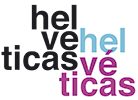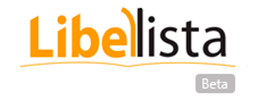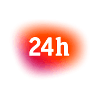Media_
INTERVIEW. By Pilar Maurell
“As women, we have been taught not to value ourselves.”
Erika Irusta follows three menstrual cycles through and from her body – a vulnerable, eventually naked body which has managed to throw off the clothes of a woman, “the cruel construction” she has been dressed in. Diario de un cuerpo is a sincere, intimate, and sometimes brutal book that finally lays bare the taboo of menstruation.
> The menstrual cycle affects all of us, yet it’s still a taboo. It’s symptomatic of this that you’re one of the few experts in Europe on it.
– It’s interesting, isn’t it – especially when that’s something we should logically have put behind us years ago. Menstruation is only ever spoken about as a medical issue, and the pharmaceutical companies invest more money in getting rid of it or the effects of it than in experiencing it as something that is part of our bodies. And there’s another huge taboo around the female body – motherhood, or non-motherhood.
> But there’s an obvious need for information.
– Yes, I do see a demand for it. I’ve been teaching about menstruation seriously for six years now, and I see more and more women daring to question their cycle and hormonal changes and how they affect them. It happens to all of us, but nobody ever talks about it openly or explicitly, so we think we’re the only ones who go through it and find it embarrassing. One of the reasons I wrote Diario de un cuerpo in the first person and over three cycles is because I thought my own body was the best place to communicate from. I do that in all my projects, and also in the texts on my blog El Camino Rubí. I get thirty or forty messages per day and they all say the same thing: “I thought I was going crazy, I thought this only happened to me.” As women, we find it hard to believe ourselves, because we’ve been taught not to value ourselves. Sometimes I say that my work is to validate what women already feel.
> You criticize the intellectualizing of the menstrual cycle, through science, for instance.
– Women have always had to see things mentally because western culture has always compared the female body to matter, to dirt, whereas men have seen themselves more spiritually. The more we rationalise things, the further we get from our own bodily experience, because lowering yourself into your own body is frightening. Also, as women, we have always had our own bodies explained to us by others, and there are a lot of diseases that affect us but are still unknown, because it’s men who do all the research.
> You’ve often said that culture constructs femininity cruelly.
– To be clothed as a woman – that is, in the way that culture does it – is to be cruelly constructed. And the way the menstrual cycle is culturally interpreted is part of that cruelty. It’s not the same for me to be menstruating as it is for such and such a powerful man to decide that I menstruate.
> Mothers have played an important role in clothing us in the way you speak out against.
– Well, if you want to get to the bottom of the issue, you have to understand the system whereby our mothers, who transmit our culture to us, have taught us to wear that clothing, and how complicated it is to get rid of it. What happened to them to make them dress us like they did? They didn’t do it to make us suffer – they did it to protect us from a world that is hostile towards our own bodies. Understanding how you were clothed, and why, is the best way to throw off those shackles and let your body be. I think it’s scandalous how many women still suffer when they menstruate.
> One of the themes in the book is the shaming of women who don’t have children. Another big taboo.
– The ‘mother’ dress is built into the way woman are clothed. Can you be a woman and not a mother? Our society uses reproduction to interpret the menstrual cycle, so what happens to those of us who don’t want motherhood, or feel ambivalent about it? And do we always think about what it means to bring another animal into the world? I was abused as a child and now I need space for myself. But how do you experience adulthood without the crutch of children?
> You say writing has been therapeutic for you.
– As I wrote, I realised I had to go into therapy to confirm that I’d suffered childhood abuse. I’d never thought about it because it would have meant questioning my parents’ love. When you’ve been abused as a kid, you’re forced to live with PTSD for the rest of your life, and literature has been a way for me to see where all my anger came from.
> You channelled the anger into your own body and it made you anorexic. Is that right?
– I have a history of ill-treating myself. Anorexia was different – I wanted to become a swan. Anorexia is a finger that points to the awful hypocrisy in society, where you’re told that you have to like yourself. And that’s a lie. Discourse isn’t the problem – it’s how we behave.
> How do you get back to your body again, peacefully?
– I’ve learnt to respect myself, and try to take as much care of myself as my mind and culture allow me to – which means going against the world. First you have to realise you are a body, and that hurts, it stings. But it’s the only way I know of feeling good inside your own body without buying clothes, watching TV, or going out all night and drinking yourself into oblivion.


















